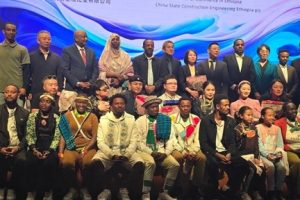
ADDIS ABABA – Collaborative and proactive efforts among stakeholders are crucial for shaping Ethiopia’s bio-technology research and development landscape and harnessing its potential, the Ethiopian Institute of Agricultural Research (EIAR) said.
Speaking to The Ethiopian Herald, EIAR Bio-technology Research Director Dejene Girma (PhD) emphasized that the complex nature of biotechnology innovation in Ethiopia requires a proactive stakeholder approach to advance the sector and emerging technologies.
Bio-technology research in Ethiopia spans agriculture, medicine, industry, and environmental sectors, with agriculture being the dominant field. Dejene highlighted, “EIAR has four satellite biotech laboratories located in Bishoftu, Melkasa, Wondogenet, and Jimma, staffed by 72 well-trained bio-technology scientists. These scientists are developing products to enhance agriculture, bio-economy, food security, import substitution, and environmental sustainability.”
Despite being in its early stages, the biotech sector in Ethiopia is already making significant impacts on various livelihoods. Dejene mentioned plans to expand projects across the country, noting that the animal biotech team has established three dairy villages in Denkaka, Sendafa, and Sululta. These villages benefit from awareness programs, training, and the sexed semen technology, which improves heifer genetics and contributes to milk self-sufficiency at the village level.
Reproductive biotechnology, diversified over the past three years, is also being implemented in urban and semi-urban areas to support urban agriculture. This initiative significantly contributes to job creation, income generation, and food and nutritional security at the household level.
“The institute is collaborating with partners on dairy processing technologies and establishing national capacity for genome editing research, which is progressing well and represents a significant milestone for Ethiopia and East Africa,” Dejene added.
Over the past decade, the institute has conducted science and evidence-based awareness creation trainings and advocacy interventions to inform the community about biotechnology, it’s potential, and biosafety issues. Despite these efforts, the biotech sector faces challenges such as the existence of multiple actors, lack of awareness, and inadequate funding.
Praising the dedication of biotech researchers at the institute and the government’s steady support, Dejene called on local actors to support biotech research and contribute to the sector’s development, which is already impacting communities and holds considerable future potential.
BY ASHENAFI ANIMUT
THE ETHIOPIAN HERALD SATURDAY 6 JULY 2024





